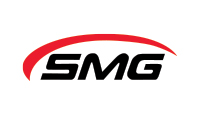Finding and getting grants or loans for start-up energy projects requires real focus and a lot of information. SMG has been working with a number of companies to help locate, qualify for and manage this funding. There are a couple of things that will make this road easier.
- Most federally-sourced funds will require a feasibility study before any significant investment becomes available. The type of feasibility study they are looking for is an in-depth, third party analysis of the financial, technical, economic and management aspects of your business plan. Initial funding is available to perform a feasibility study through several avenues. Funding is generally limited to $20,000 to $30,000.
- The Rural Energy for America Program (REAP) funding is available up to $50,000 but requires a 75% cost share. http://farmenergy.org/news/reap-feasibility-funding-available This program is operated by the U.S. Department of Agriculture which is very interested in promoting rural development, especially using biomass.
- The Federal Small Business Innovation Research (SBIR) and Small Business Technology Transfer (STTR) Grant Programs ( http://www.sbir.gov/about/about-sbir ) are another potential source of development funds for projects with innovative technology. These programs provide grants, up to $100,000 to prepare a feasibility study and have the added benefit of Phase II which can help develop prototypes through grants up to $1,000,000. To qualify, a company must be organized for profit, be owned and controlled by U.S. citizens and have no more than 500 employees. The SBIR program encouraged partnering with research organizations, while the STTR does not. Although the programs provide federal dollars, they are generally administered by state agencies. In Kentucky, the managing agency is the Kentucky Science and Engineering Foundation (KSEF) which is part of the Kentucky Science and Technology Corporation (KSTC). http://www.kysbir.com/
The in-depth feasibility study required by federal programs will generally cost between $25,000 and $50,000 to complete, with the possibility of even higher costs for complex projects. These studies will be used to qualify for federal funds, to demonstrate to state economic development agencies the viability of the proposed project, and with potential investors in the project. More important, a thorough study will enable the project to improve through early identification of the weaknesses and strengths of the technology and the business plan.
A study will include at least the following aspects:
- Economic feasibility – Information related to the project site; availability of trained or trainable labor; utilities; rail, air, and road service to the site; and the overall economic impact of the project.
- Market feasibility - Information on the sales organization and management, nature and extent of market and market area, marketing plans for sale of projected output, extent of competition, and commitments from customers or brokers.
- Technical feasibility – Technical feasibility reports address the suitability of the selected site for the intended use including an environmental impact analysis. The report should include verifiable data and contain sufficient information and analysis to determine the technical feasibility of achieving the levels of income or production that are projected in the financial statements. The report also will identify constraints or limitations in these financial projections and other facility or design-related factors which might affect the success of the enterprise. The report will estimate project operating and development costs, with a stated level of accuracy of these estimates and the assumptions on which these estimates have been based.
- Financial feasibility – An opinion on the reliability of the financial projections and the ability of the business to achieve the projected income and cash flow. An assessment of the cost accounting system, the availability of short-term credit for seasonal business, and the adequacy of raw materials and supplies.
- Management feasibility – Evidence that continuity and adequacy of management has been evaluated and documented as being satisfactory.
To get help with your project, or to ask questions about funding a feasibility study, contact SMG at saras@smithmanage.com or 859-231-8936 in Lexington or 502-587-6482 in Louisville.
